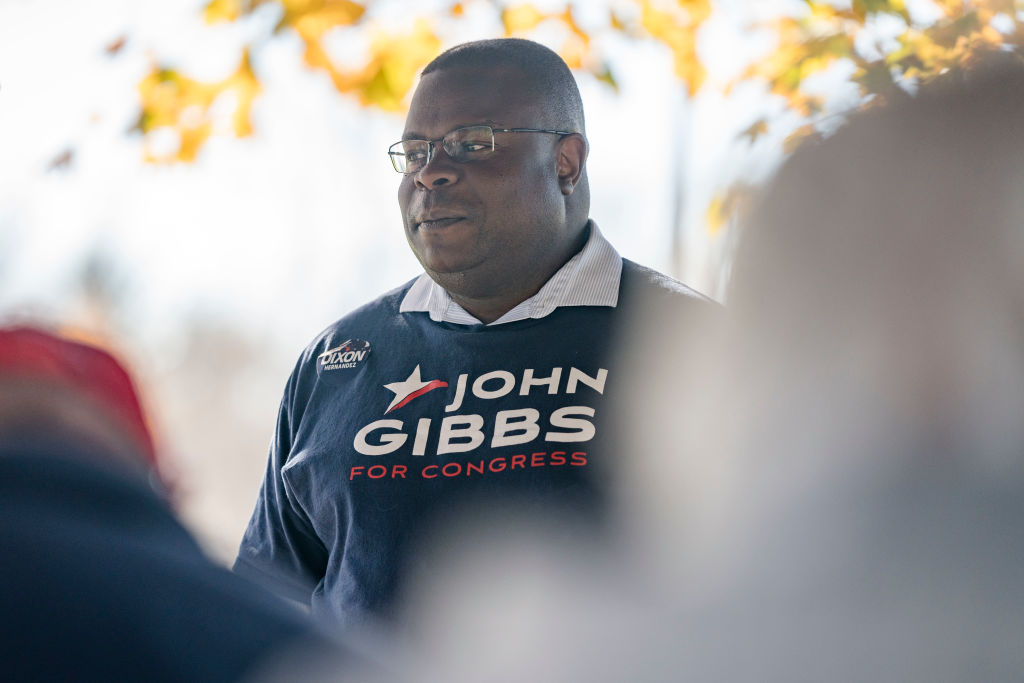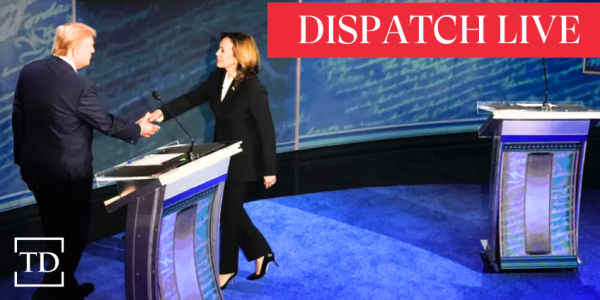One of the things the Donald Trump-aligned Republican populists are going to have to account for before they can move on from the midterm fiasco: They got took.
Trump epigones such as Steve Bannon and his acolytes think of themselves as hard-headed, cynical, scheming Machiavellians—you’ve heard all the stuff about “12-D chess” and thinking five moves ahead—but they are, almost to a man, suckers. And, like suckers everywhere, they always get took.
The Democrats rolled the dice in a big and bold way in the midterms, putting more than $40 million into the campaigns of the nuttiest nut-cutlets contesting the Republican primaries, hoping to advance the worst of the crackpots, coup-plotters, and conspiracy kooks to the general election. This was based on the theory that these howling moonbats would be easier to beat than would some boring, buttoned-down, golf-playing Republican type who might want to talk a lot about inflation rather than Jewish space lasers or the Venezuelan cyber-commandos who run our elections. It was cynical, undemocratic, and immoral—that is, everything you might expect from the mind of a Steve Bannon or a Rudy Giuliani.
Except for the fact that the Democrats won.
In every major race in which the Democrats helped to elevate the kind of Republican who is even more daft and irresponsible than the average Republican, the Democrat-backed Republican loon crashed harder than Lynyrd Skynyrd. In New Hampshire, Don Bolduc didn’t lay a glove on Maggie Hassan; in Michigan, Trump-endorsed and Democrat-funded moonbat John Gibbs defeated normie Republican Peter Meijer in the primary and then lost to Democrat Hillary Scholten; in Pennsylvania, conspiracy kook Doug Mastriano rose to the Republican gubernatorial nomination on Democratic wings and not only cost the GOP that race but probably weighed down the rest of the ticket enough to cost television quack Mehmet Oz the Senate race against a cognitively impaired hipster poseur who used to be the mayor of a town you’ve never heard of. The story played out in more than a dozen races.
There is a certain magic in language, and, in politics, people who don’t know very much about how elections and government actually work sometimes latch onto a word or a phrase that seems to them to be a kind of skeleton key: For years, my lightly educated leftist friends would rage about “neoliberalism” or, in the George W. Bush years, “neocons,” without ever quite understanding what those terms mean or what people and institutions are best described by them. A certain segment of the right picked those up, too, which is how “neocon” came to mean: “a Jewish Republican I hate.”
As a conservative Trump critic, I often have been described by the Very Online Right as “controlled opposition,” one of those conspiracy-minded terms that is right up there with “false-flag operation” in its ability to provide moral camouflage to poisonous horse pucky. The idea of “controlled opposition,” a feature of political life in some effectively (or formally) single-party states, is that there is some faction that pretends to be opposed to the ruling party while actually doing its work by taking up space in public life that might otherwise be occupied by an authentic opposition, operating as the regime’s cat’s-paw either out of secret sympathy to it or simply for money or perks. The poles of that particular worldview are stupidity and dishonesty—which are the guiding stars of Trumpism as a whole—but stop and appreciate for a moment the gloriously poetic justice of watching the people who complain most bitterly about “controlled opposition” falling for actual, literal controlled opposition: Republican candidates aided and funded by self-interested Democrats purely for the purpose of keeping more viable conservatives out of the general election.
The best kind of mark for a con artist is a dumb person who thinks he is smart—or a smart person who isn’t quite as smart as he thinks he is. The right-wing populists who got behind these Democrat-funded candidates knew what they were doing—it wasn’t a secret who was controlling the money that was deciding those primary races. But they went along with the con, turning out in the primaries to elect the people the Democrats spent tens of millions of dollars trying to support. That’s because they believe their own bull: that they are super-clever grandmasters of 12-D chess who can see five steps ahead of the Democrats’ gambit and then counter it to win.
And they got took.









Please note that we at The Dispatch hold ourselves, our work, and our commenters to a higher standard than other places on the internet. We welcome comments that foster genuine debate or discussion—including comments critical of us or our work—but responses that include ad hominem attacks on fellow Dispatch members or are intended to stoke fear and anger may be moderated.
You are currently using a limited time guest pass and do not have access to commenting. Consider subscribing to join the conversation.